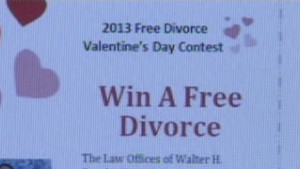And rest assured, you moms and dads with Moebius children: this too could affect your child. Technology and social media are here to stay, there can be no question. ALL children are going to be connected to it in years to come. And bullying can come from that direction, then, too. But you can be aware of it and there are things you can do. Read on:
"Brandon Turley didn't have friends in sixth grade. He would often eat alone at lunch, having recently switched to his school without knowing anyone.
While browsing MySpace
one day, he saw that someone from school had posted a bulletin -- a
message visible to multiple people -- declaring that Turley was a "fag."
Students he had never even spoken with wrote on it, too, saying they
agreed.
Feeling confused and
upset, Turley wrote in the comments, too, asking why his classmates
would say that. The response was even worse: He was told on MySpace that
a group of 12 kids wanted to beat him up, that he should stop going to
school and die. On his walk from his locker to the school office to
report what was happening, students yelled things like "fag" and
"fatty."
"It was just crazy, and
such a shock to my self-esteem that people didn't like me without even
knowing me," said Turley, now 18 and a senior in high school in Oregon.
"I didn't understand how that could be."
A pervasive problem
As many as 25% of teenagers have experienced cyberbullying at some point, said Justin W. Patchin,
who studies the phenomenon at the University of Wisconsin-Eau Claire.
He and colleagues have conducted formal surveys of 15,000 middle and
high school students throughout the United States, and found that about
10% of teens have been victims of cyberbullying in the last 30 days.
Online bullying has a lot
in common with bullying in school: Both behaviors include harassment,
humiliation, teasing and aggression, Patchin said. Cyberbullying
presents unique challenges in the sense that the perpetrator can attempt
to be anonymous, and attacks can happen at any time of day or night.
Brandon Turley, 18, who experienced cyberbullying in middle school, designed the WeStopHate.org website.
There's still more
bullying that happens at school than online, however, Patchin said. And
among young people, it's rare that an online bully will be a total
stranger.
"In our research, about
85% of the time, the target knows who the bully is, and it's usually
somebody from their social circle," Patchin said.
Patchin's research has
also found that, while cyberbullying is in some sense easier to
perpetrate, the kids who bully online also tend to bully at school.
"Technology isn't necessarily creating a whole new class of bullies," he said.
Long-lasting consequences
The conversations that
need to be happening around cyberbullying extend beyond schools, said
Thomas J. Holt, associate professor of criminal justice at Michigan
State University.
"How do we extend or
find a way to develop policies that have a true impact on the way that
kids are communicating with one another, given that you could be bullied
at home, from 4 p.m. until the next morning, what kind of impact is
that going to have on the child in terms of their development and mental
health?" he said.
Holt recently published a
study in the International Criminal Justice Review using data collected
in Singapore by his colleague Esther Ng. The researchers found that 27%
of students who experienced bullying online, and 28% who were victims
of bullying by phone text messaging, thought about skipping school or
skipped it. That's compared to 22% who experienced physical bullying.
Those who said they were
cyberbullied were also most likely to say they had considered suicide
-- 28%, compared to 22% who were physically bullied and 26% who received
bullying text messages.
Although there may be
cultural differences between students in Singapore and the United
States, the data on the subject of bullying seems to be similar between
the two countries, Holt said.
A recent study in the journal JAMA Psychiatry
suggests that both victims and perpetrators of bullying can feel
long-lasting psychological effects. Bullying victims showed greater
likelihood of agoraphobia, where people don't feel safe in public
places, along with generalized anxiety and panic disorder.
Tips for parents
1. Be a good example -- kids often learn bullying behavior from their parents.
2. Teach your child what it means to be a good friend.
3. Make your home a safe haven for kids after school.
4. Use teachable moments on TV to show the power of bystanders.
5. Listen. Don't be in denial about incidents that are brought to your attention.
1. Be a good example -- kids often learn bullying behavior from their parents.
2. Teach your child what it means to be a good friend.
3. Make your home a safe haven for kids after school.
4. Use teachable moments on TV to show the power of bystanders.
5. Listen. Don't be in denial about incidents that are brought to your attention.
People who were both
victims and bullies were at higher risk for young adult depression,
panic disorder, agoraphobia among females, and the likelihood of suicide
among males. Those who were only bullies showed a risk of antisocial
personality disorder.
Reporting cyberbullying
Since everything we do
online has a digital footprint, it is possible to trace anonymous
sources of bullying on the Internet, he said. Patchin noted that
tangible evidence of cyberbullying may be more clear-cut than "your word
against mine" situations of traditional bullying.
Patchin advises that
kids who are being cyberbullied keep the evidence, whether it's an
e-mail or Facebook post, so that they can show it to adults they trust.
Historically, there have been some issues with schools not disciplining
if bullying didn't strictly happen at school, but today, most educators
realize that they have the responsibility and authority to intervene,
Patchin said.
Adults can experience
cyberbullying also, although there's less of a structure in place to
stop it. Their recourse is basically to hire a lawyer and proceed
through the courts, Patchin said.
Even in school, though, solutions are not always clear.
Turley's mother called
the school on his behalf, but the students involved only got a
talking-to as punishment. Cyberbullying wasn't considered school-related
behavior, at least at that time, he said.
"I was just so afraid of
people," says Turley, explaining why he went to different middle
schools each year in sixth, seventh and eighth grade. He stayed quiet
through most of it, barely speaking to other students.
Fighting back by speaking out
Turley started slowly
merging back into "peopleness" in eighth grade when he started putting
video diaries on YouTube. Soon, other students were asking him to help
them film school project videos, track meets and other video projects.
In high school, Turley discovered an organization called WeStopHate.org, a nonprofit organization devoted to helping people who have been bullied and allow them a safe space to share their stories.
Emily-Anne Rigal,
the founder of the organization, experienced bullying in elementary
school, getting picked on for her weight. Although she and Turley lived
on opposite sides of the country, they became friends online, united by
their passion for stopping bullying.
WeStopHate.org has
achieved a wide reach. Rigal has received all sorts of honors for her
efforts, from the Presidential Volunteer Service Award to a TeenNick
HALO Award presented by Lady Gaga.
Turley designed the
WeStopHate.org website and most of its graphics, and is actively
involved in the organization. In additional to Rigal, he has many other
friends in different states whom he's met over the Internet.
"I got cyberbullied, and
I feel like, with that, it made me think, like, well, there has to be
somebody on the Internet who doesn't hate me," he said. "That kind of
just made me search more."
Parental controls
Ashley Berry, 13, of
Littleton, Colorado, has also experienced unpleasantness with peers
online. When she was 11, a classmate of hers took photos of Ashley and
created an entire Facebook page about her, but denied doing it when
Ashley confronted the student whom she suspected.
"It had things like
where I went to school, and where my family was from and my birthday,
and there were no security settings at all, so it was pretty scary," she
said.
The page itself didn't
do any harm or say mean things, Ashley said. But her mother, Anna Berry,
was concerned about the breach of privacy, and viewed it in the context
of what else was happening to her daughter in school: Friends were
uninviting her to birthday parties and leaving her at the lunch table.
"You would see a girl who should be on top of the world coming home and just closing herself into her bedroom," Berry said.
A classmate of Ashley Berry took photos of her and created an entire fake Facebook page.
Berry had to get police
involved to have the Facebook page taken down. For seventh grade, her
current year, Ashley entered a different middle school than the one her
previous school naturally fed into. She says she's a lot happier now,
and does media interviews speaking out against bullying.
These days, Berry has
strict rules for her daughter's online behavior. She knows Ashley's
passwords, and she's connected with her daughter on every social network
that the teen has joined (except Instagram, but Ashley has an aunt
there). Ashley won't accept "friend" requests from anyone she doesn't
know.
*****************************
"5. To fight fear, act. To increase fear…wait, put off, postpone." -David J. Schwartz

